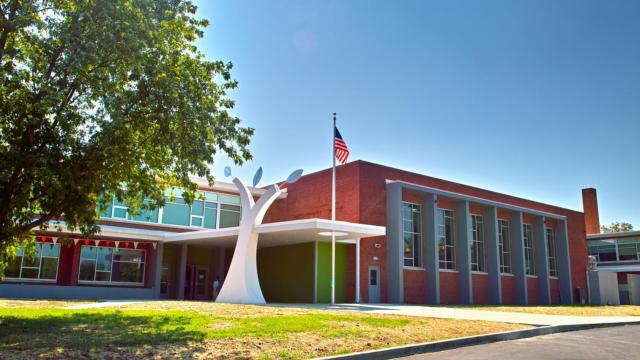
With the Department of Education cutting funding across the board this year, families and communities everyone are feeling the squeeze. Now, resistance to school closures and consolidations is moving visibly beyond big cities like Chicago and Philadelphia into more rural regions — the latest being Sullivan County, in northeastern Tennessee.
In the case of the Chicago School District, the third largest in the nation, 49 schools are closing this year in addition to the 100 or so that have already been shuttered in recent years. Parents and students are protesting the decision, often with tears and yelling, to no avail. Chicago Teachers Union President Karen Lewis stated: “Closing 50 of our neighborhood schools is outrageous and no society that claims to care anything about its children can sit back and allow this to happen to them.”
The CTU has cited in a comprehensive report that at least two of the city's schools are closing due to direct neglect by the Chicago Public Schools system. Now, according to the Huffington Post, the CTU is filing a lawsuit on behalf of parents and students to keep some of these schools open.
But Chicago isn't the only city that seeks to consolidate its schools to ease its empty district wallets. The same thing is happening in Washington, D.C., Philipstown, N.Y. — and now in Sullivan County, Tennessee, the scene of recent outrage and protest.
Most districts claim their closures are a result of low enrollment and lack of funding. But is school consolidation really the answers to low enrollment? Save the South Zone, a grassgroots group in Sullivan County, says no.
Save the South Zone's families and students are fighting the consolidation of local middle schools into the area's high schools. They suggest, instead, that the school board consider attracting additional students to the district as well as finding areas within the district budget to help cover the $3 million annual shortfall.
The group has collected over 300 signatures in its effort to turn back the tide of school closings, and it recently succeeded getting the county school board to postpone a decision on school consolidation for six months, according to the minutes taken from a recent board meeting.
This small victory is important — and it could lead to other ones elsewhere. The closing of Colonial Heights Middle School in the south of the county would lower property values, the group argued. Added to this was the fact that the school actually did not suffer the degree of enrollment problems the school board suggested. An independent study by the school board showed that after a few years of slight decline, the school will in fact show an increase in enrollment. So why is the school board insisting that low enrollment be translated into an "emergency" consolidation of middle and high schools?
Because it's the easiest way out for them, of course. Rather than admit to not adequately managing the upkeep of school buildings and reigning in spending, the board chose to follow the path of its Washington siblings and continued to use band aids to patch the gushing expenses. One question on the school board's website asked where the district's $3 million budget shortfall came from. The school board responded that it had to pull from its "savings account" last year to balance the budget, to the tune of $2 million.
Save the South Zone shot back, at a school board meeting on June 3, stating: “Are we to believe that the Dept of Education is run so tightly that they can’t find 3% of their operating budget in cost cutting? Thanks to Medicare, doctors are cutting 10% from their budget this year. If they can do it, the DOE can do it as well.”
What the conflict comes down to is this: sacrificing education and community to balance over-sized spending. Not just in Tennessee, but all across America, if communities consolidate their schools, teachers will lose jobs and communities will suffer. It is becoming harder and harder for licensed teachers to get jobs, despite the supposed demand. Additionally, most neighborhoods spring up around schools; these neighborhoods will now decline as people move away to be closer to new schools.
If education is a priority for America, school consolidation and school closures are not the way forward. The success that Save the South Zone has achieved in Sullivan County comes from its members' commitment, organization and vocal approach to the issue. Parents, teachers and community members went through the proper channels. The spoke at board meetings. They started a petition. They made themselves heard.
The same holds true for teachers everywhere who are concerned about losing their jobs. As teachers, we cannot stay silent and hope the situation goes away. We cannot be afraid to voice our interests and fight for what we know to be right. The option before us is clear: speak out. And do it soon.
3 WAYS TO SHOW YOUR SUPPORT
- Log in to post comments













